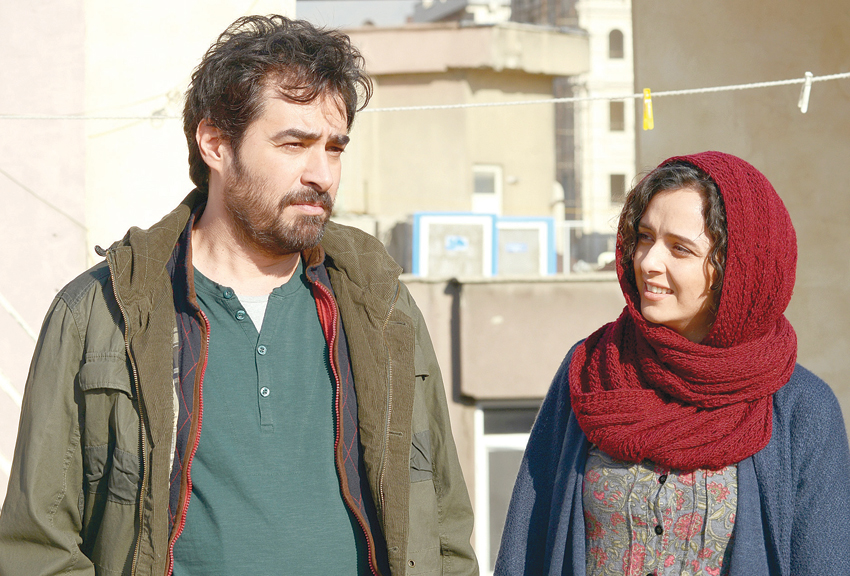

Subhash K Jha -
One of the early reviews of writer-director Asgar Farhadi’s film ‘The Salesman’ that appeared in India wonders why we can’t make films like these.
Meaning, I suppose, that our films are intellectually inferior to what this Iranian Oscar winner has achieved. There is an aphorism in Hindi — “Dur ka dhol suhana lagta hai” — drum beats from afar are attractive. Any acclaimed film that comes to us from abroad, and that too with an Oscar tag attached to it, is worthy of being anointed an instant classic.
“The Salesman” is an interesting piece of drama crafted with a sense of delicacy and skill. But it doesn’t even begin to scale the heights that we imagine a film so vastly celebrated would achieve.
From the stagey opening when we see the protagonist Emad (Shahab Hosseini) playing the lead in a stage adaptation of Arthur Miller’s “Death Of A Salesman”, the narrative eases us, not too gently but with a seeming lack of persuasion, into a marital drama that begins when Emad and his wife Rana (Taraneh Alidoosti) move into a new home whose earlier occupant haunts their marriage and tears it apart.
Hmmmm... Sounds familiar? For all you anglophile critics, here is news. Indian cinema attempted this theme 45 years ago in author-filmmaker Rajinder Singh Bedi’s “Dastak” where a Muslim couple moves into a house of disrepute, occupied by a prostitute whose horizontal activities infected the new tenants of the home with her horny-presence.
There is no sex in “The Salesman”, not on screen, not off it. The couple behaves like two cordial strangers sharing the same roof. They could be siblings for all we care. The entire erotic echoes of the past occupant is thereby lost, as is the thematic thrust and heave of Arthur Miller’s play and the unexpected ways it impacts the lives of the couple.
There is one very interesting interlude where a little boy sleeps over in the couple’s home. His contagious cuteness pervades the couple and reminds us of the mutual passion that their marriage seems to lack.
The turning point about an intruder traumatising the wife is so swathed in ambiguity and so fearful of probing into the facts that we feel we have been put in a place where the marriage has to be seen and evaluated by a moral code laid down by the director and the society he represents.
An oppressive silence swamps the plot, although the characters chatter non-stop. But you often get the feeling that writer-director Asgar Farhadi’s characters are bogged down by the political tyranny that prevails in his cinema. It is not only his lead pair playing out a tranquil blueprint of marital discord, who need a walk-up call.
The director himself seems to meander through various alleys and thoroughfares of his liberty-challenged storyline and brings Emad and Rana face-to-face with the intruder who changed the profile of their marriage.
It is here that “The Salesman” reveals its most glaring weaknesses. The breath increases, the narrative wheezes and pants, and displays distinctive signs of breathlessness as the intruder turns out to be a hapless old man. The last act of this clumsily-staged saga of drama, dread and damnification during times of disconnected courtship, is shot like a Youtube video on an intruder being questioned and punished.
“The Salesman” never tells us why the couple stares at one another like two kids in primary school who have just discovered that babies are not born by the sucking of the theme. While Shahab Hosseini and Taraneh Alidoosti are strong with silences, they seem to collapse under the torrent of words that they exchange with the extraneous characters.
We leave “The Salesman” where it begins, not knowing what really happened to the wife on that fateful night when the intruder broke into her home. The film seems to suggest God lies not in details but in a silent acceptance of the mysteries of the universe. Mysteries that Asghar Farhadi seems to suggest he can unravel. But he would rather not, shukriya. — IANS
Oman Observer is now on the WhatsApp channel. Click here



